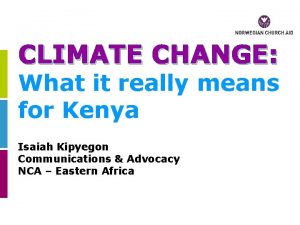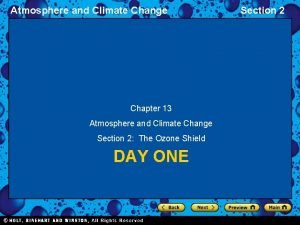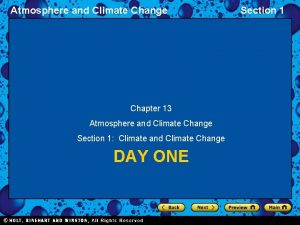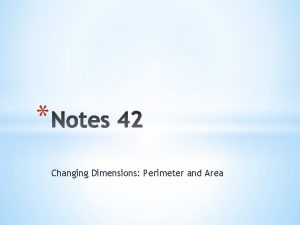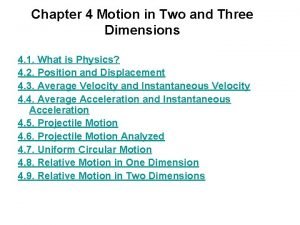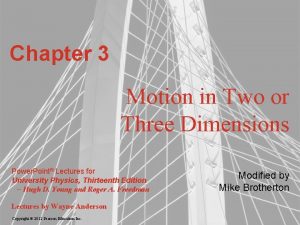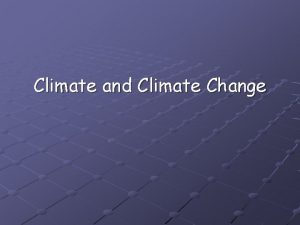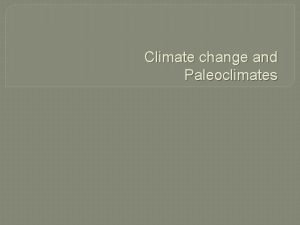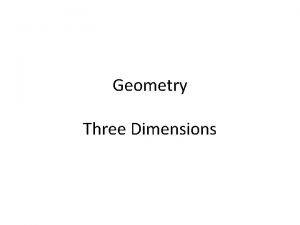Climate change and the three dimensions of the






- Slides: 6

Climate change and the three dimensions of the Next Generation Science Standards

Dimension 1: Practices Asking questions (for science) and defining problems (for engineering) Developing and using models Planning and carrying out investigations. Analyzing and interpreting data. Using mathematics and computational thinking. Constructing explanations (for science) and designing solutions (for engineering). Engaging in argument from evidence. Obtaining, evaluating, and communicating information. Achieve, 2013

Dimension 2: Cross-Cutting Concepts Patterns Cause and effect: Mechanism and explanation Scale, proportion, and quantity Systems and system models Energy and matter: Flows, cycles, and conservation Structure and function Stability and change Achieve, 2013

Dimension 3: Disciplinary Core Ideas Example area - Earth Science ESS 1 A: The Universe and its Stars ESS 2 D: Weather and Climate ESS 1 B: Earth and the Solar System ESS 2 E: Biogeology ESS 1 C: The History of Planet Earth ESS 3 A: Natural Resources ESS 2 A: Earth Materials and Systems ESS 3 B: Natural Hazards ESS 2 B: Plate Tectonics and Large. Scale Systems ESS 3 C: Human Impacts on Earth Systems ESS 2 C: The Role of Water in Earth’s Surface Processes ESS 3 D: Global Climate Change Achieve, 2013

Climate Change Education Resources http: //cleanet. org

This presentation was designed by the MADE CLEAR Learning Sciences Research Team at the University of Maryland, College Park (www. Climate. Ed. Research. org) This material is based upon work supported by the National Science Foundation under Grant No. 1043262. Any opinions, findings, and conclusions or recommendations expressed in this material are those of the author(s) and do not necessarily reflect the views of the National Science Foundation.

